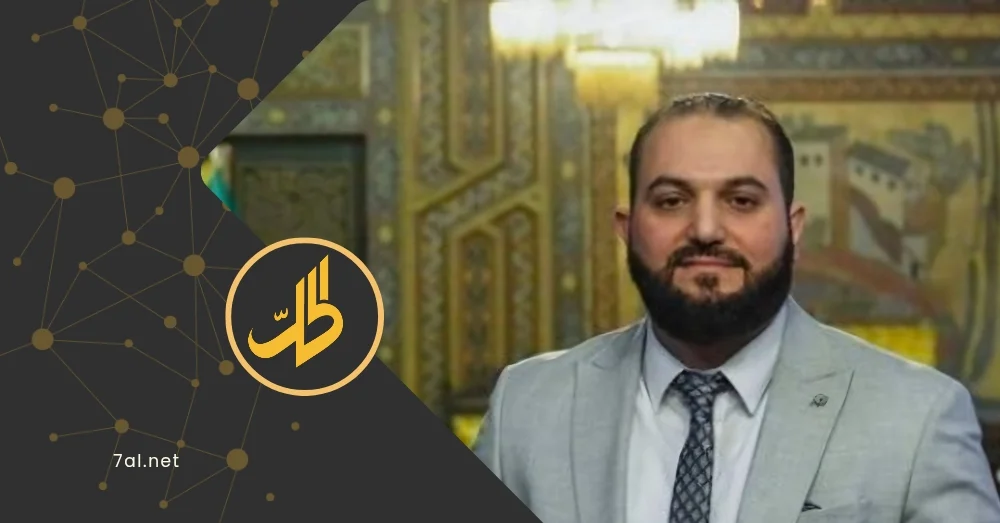The recent appointment of Maher Marwan as governor of Damascus has ignited a wave of criticism and concern—not only over the credentials of the man tasked with leading one of the world’s oldest capitals, but also against the backdrop of a dramatic deterioration in public security across the country, particularly in Damascus and the coastal regions.
Marwan, a figure surrounded by controversy, is closely related to Syria’s transitional president Ahmad al-Sharaa. He is both a cousin and brother-in-law of the president, raising questions about nepotism and the politicisation of high-level appointments during a critical phase of Syria’s transition.
A Shadowed Record
Maher Marwan’s track record is far from reassuring. Known during his time in Idlib as Abu Majid al-Shami—and previously as Maher al-Adlabi—he rose rapidly through the ranks of Hay’at Tahrir al-Sham (HTS), a group still designated as a terrorist organization by several countries. He held various posts within HTS’s administrative and judicial bodies, including head of its Zakat Authority and membership in its advisory council.
More troubling are the allegations surrounding his role in HTS’s security apparatus. Former leaders and defectors from the group, including Abu Malik al-Talli, have accused Marwan of participating in torture, illegal detentions, and corruption, particularly during the so-called “spies’ purge” in Idlib. Reports cite his involvement in secretive trials, the leaking of information to discredit opponents, and the mistreatment of detainees—including veteran fighters and religious students.
Despite this record, Marwan was recently appointed to govern the Syrian capital. For critics, this reflects not a merit-based transition to civilian governance but a continuation of authoritarian practices through familial loyalty and factional entrenchment.
Rising Lawlessness and State Paralysis
His appointment comes at a time when the state appears unable—or unwilling—to address rising violence and organized crime in the very city he now governs. Damascus, along with Syria’s coastal regions, has witnessed a disturbing escalation in kidnappings, disappearances, and murders, with minimal state response.
According to the Syrian Observatory for Human Rights, incidents of abduction have become widespread—from Lattakia and al-Qardaha to the streets of Damascus. Armed groups, often linked to militias affiliated with the new transitional government, have been implicated in multiple cases. Victims range from children to working professionals, with motives varying from extortion to retaliation. In many cases, security services either deny jurisdiction or claim the perpetrators belong to unaccountable factions.
In one recent case, a 17-year-old boy was abducted in front of his school in Lattakia by men driving a Chevrolet vehicle registered to a faction rather than the state. In another, a young man was taken from his home in al-Qardaha by a local militia commander. The pattern continues in Damascus, where masked gunmen operate with impunity, even in central districts.
Meanwhile, cities like Homs are witnessing a spate of random killings. Motorcyclists, often masked and unidentified, have opened fire on civilians—including women and children—in broad daylight. In one case, a mother and her 20-year-old daughter were killed, and an 11-year-old girl seriously wounded, in a drive-by shooting in the Wadi al-Dhahab neighborhood.
Authorities have offered no meaningful responses. No suspects have been arrested, and no serious investigations have been launched. For residents, the message is clear: Syria’s new rulers are failing to restore even the most basic order.
The Price of Loyalty?
Against this backdrop, the appointment of Maher Marwan raises serious questions about the transitional leadership’s priorities. Is this the dawn of a new Syria governed by justice and competence, or a reshuffled version of the old order, where personal connections override public trust?
The people of Damascus—and Syria more broadly—have paid dearly for over a decade of war, repression, and misrule. They now demand leadership that is transparent, accountable, and untainted by the abuses of the past. Entrusting the capital to a figure with Marwan’s profile risks further alienating a weary population and undermining the credibility of the transitional project.
If Syria is to move forward, it cannot afford to substitute one form of impunity for another.
This article was translated and edited by The Syrian Observer. The Syrian Observer has not verified the content of this story. Responsibility for the information and views set out in this article lies entirely with the author.


